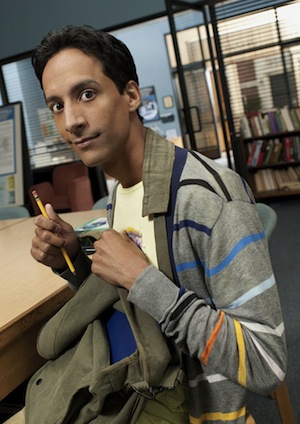Want a dichotomy? I hate romantic
comedies, and my favorite movie is a romantic comedy.
What's my favorite movie? A Japanese
film called Densha Otoko, or Train Man. It's the true story of
an internet phenom known only as “Densha”. He stands up for a
woman on the train when a drunk harassed her. He got her phone number
out of the deal, and, being a geek, he turned to internet forums for
advice on what to do.
The movie is split between the
2chan segments, where Densha seeks advice and empties his heart
online to a rotating cast of listeners, whose forum speak is
portrayed excellently onscreen through kinetic typography, and the
dates with his dream girl, where he awkwardly and cutely tries to
pitch woo.
From there you can probably guess the
rest. He screws up and almost loses her, he works out his problem and
gets her back, and they live happily ever after.
It's not the best movie I've ever seen.
Citizen Kane is better, obviously. So is Ben Hur, Sunset Boulevard,
Seven Samurai, all the standard choices. In terms of being a great
movie, Densha Otoko isn't even in the top 100. I'm not even sure if
it's really a good movie.
But, it is my favorite, and not as a
guilty pleasure or “so-bad-it's-good” thing. In terms of pure
enjoyment, this formulaic and only slightly visual innovative
romantic comedy is my favorite film of all time.
And yet, I hate the romantic comedy. I
hate it as a genre. Not universally, obviously, but the odds are
really high that if you show me a romantic comedy, I will hate it.
Not just dislike it, mind you, I will find it an utterly loathsome
film.
Why do I love a formulaic romantic
comedies, then, if I hate the genre? That's why I hate it. Because it
is a genre which has perfectly good potential, and Densha Otoko's
example shows off perfectly what the failings of this genre are.
So, at its core, the romantic comedy is
the story of a relationship. The conflict starts with them apart, and
ends with them together. That's the problem.
Love is... essentially... a selfish
motivation. There's nothing wrong with it, I'm not against love, mind
you, I want it like any red-blooded American. But, if I were to meet
a girl and strike up a relationship I would not expect anyone else to
be invested. It is between me and her, and, although ideally it will
benefit both of us, it won't make the world better for our friends or
coworkers or society in general.
If I'm watching a movie about two
people falling in love, why should I care about them? There's nothing
inherently heroic about what they were doing, and nothing at stake
beyond one relationship not working out. So, why should I give a crap
about your characters and care about your story?
Well, in Densha Otoko I care because
they make a point about why I should care about Densha and want him
to succeed. He's a geek whose life has been limited to online
interactions, so much so that he uses it as a crutch to live his life
for him. By pursuing this girl, he grows in confidence and
interpersonal skill. His relationship is not the ONLY aspect of his
character that grows.
That's good drama, a character starts
out as flawed but sympathetic, and over the course of the story he
improves as a person. It's why I love the character, it's why I love
the movie. It's not just some wish-fulfillment fantasy about getting
women, it's about realizing that you can be the person you want to be
if you have confidence.
So, let me ask you: Why is that so
rarely the case?
Romantic comedies, as a rule, fail to
remember this very necessary element. The hero is almost always just
someone whose life is fine but they don't have a relationship. Or, if
it's a man, usually that he has tons of sex all the time but no
desire for a relationship.
Who cares? Why should I want to follow
the story of someone who has 99% of their life in order and every
reason to be happy but for one last luxury. Well, most movies don't
give you a reason. There is no growth outside of the relationship and
that just makes for a frustrating movie, not only because it isn't
very dramatic but because the subtext is insulting: The pursuit of
personal joy is enough to carry a movie.
It isn't. That's not good storytelling,
it's just wank. It's just wank. It's just pure, self absorbed wank of
people saying “Look how awesome are attractive people are and how
awesome things happen to them. Although there's some entirely
survivable slapstick antics.” At they're worst, and they commonly
reach the worst, the characters are hopelessly unlikeable, since
they've benefited from negative behavior their whole lives without
any real consequence.
I've been told that people who are
actually in relationships like these movies sometimes. Just like
people who are parents like movies about kids with no real story
value.
I can't tell you enjoyment is wrong,
but I just want you to recognize why these movies just don't have a
lot of logic or real drama to them. It's cool if you like it because
you like seeing happy things be happy, but the genre is capable of
more.
Go watch Densha Otoko. That is the
watermark, that manages to have everything the average romantic has
plus a solid character arc and genuine likability. So, I don't feel
bad saying I hate romantic comedies because I have a solid standard
to hold them to.
Labels: Bad Movies, Cinema, Densha Otoko, Genre, Movies, Plot, Romantic Comedy, Story


